E-Books
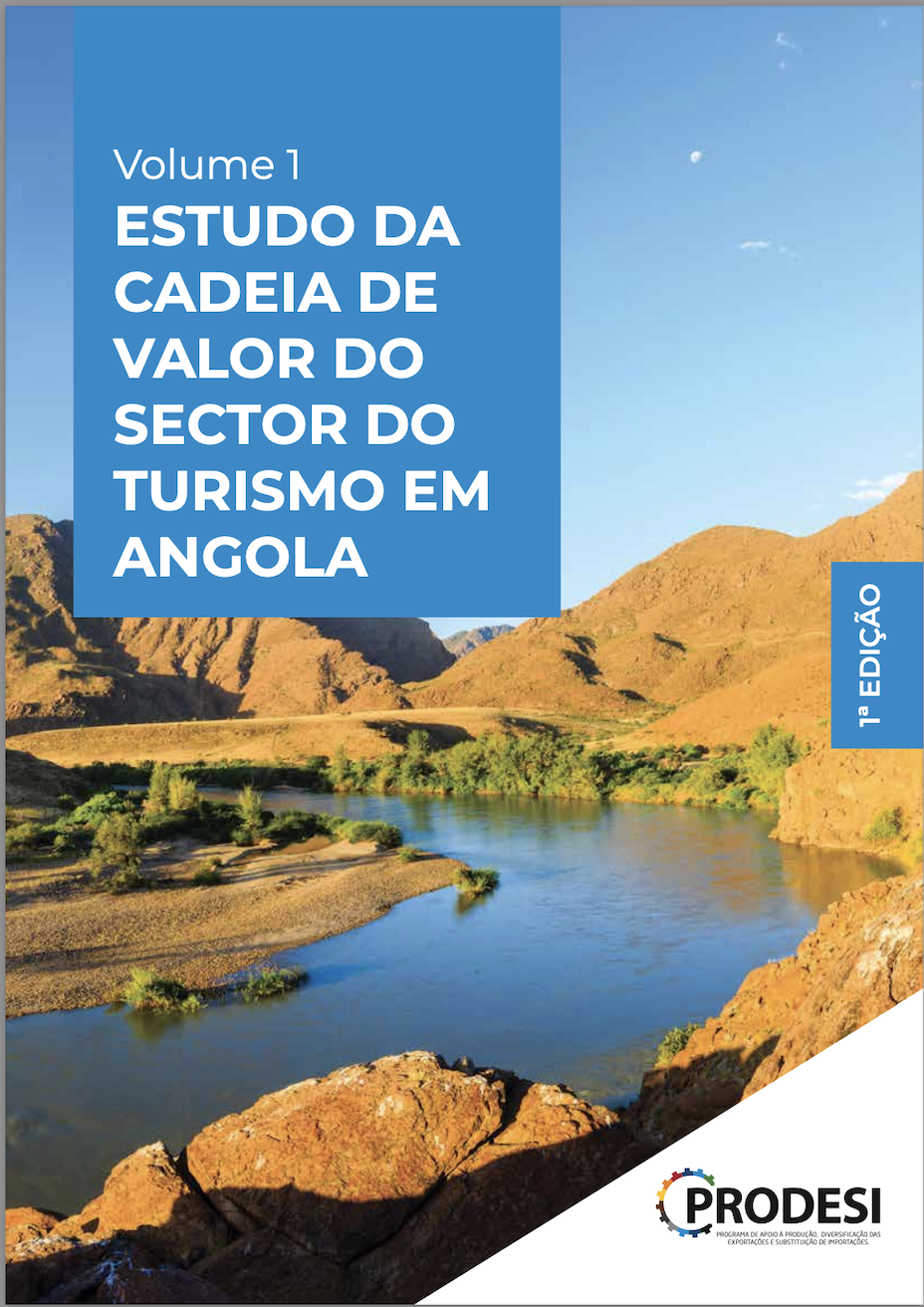
Estudo da cadeia de valor do setor do turismo em Angola – 1ª Edição
Abstract:
Tourism has grown steadily at an international level, both in terms of the number of tourists and in terms of revenue generated. However, Angola has not followed this trend, so it is not surprising that the weight of tourism in the country’s GDP is reduced (less than 1% in 2018). This situation is all the more serious as the countries in the region all have a much higher contribution from tourism to the GDP than Angola. The aim of this report is to identify the main weaknesses of the value chain that underpins tourism activity and to propose a set of measures and recommendations to be implemented within the scope of PRODESI.
Quotation:
Sarmento, Eduardo Moraes e PAHL Consulting (2020). Estudo da cadeia de valor do sector do turismo em Angola. Volume 1. Banco Africano de Desenvolvimento e Ministério da Economia e do Planeamento.
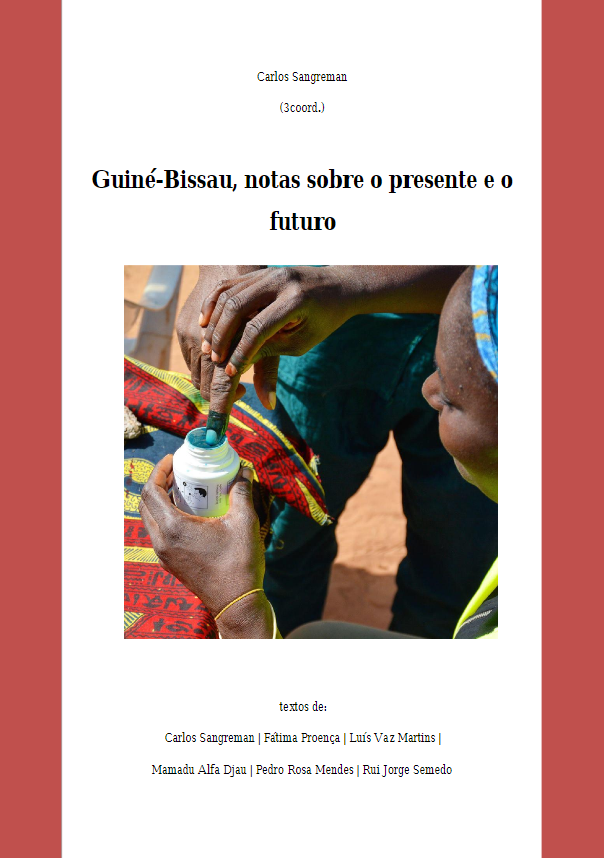
Guiné-Bissau – Notas sobre o presente e o futuro
Abstract:
The idea of publishing the book Notas sobre o presente e o futuro of Guinea-Bissau arose from the need to get to know the country better and to think about its recent past, which will inevitably contribute to its near future. The aim was to collect existing texts that were revised and updated and to ask some authors to reflect on themes based on the motto “Guinea-Bissau, notes on the present and the future”. These texts are published at a special moment in the country. After a period of a government appointed by the military that took power in 2012, elections were held in 2014 and a round table was held in Brussels where the country received a great deal of encouragement from its international partners – institutions and countries – in support of a government and a president that everyone had hoped would provide a more stable and successful evolution such as there had not been until then. But these expectations came up against a conflict between sovereign bodies, which frustrated this support and threw the country into a four-year period of instability that began to end with the legislative elections on 10 March 2019 but is only expected to return to normal institutional functioning with the presidential elections in November of the same year.
Quotation:
Sangreman, Carlos, Fátima Proença, Luís Vaz Martins, Mamadu Alfa Djau, Pedro Rosa Mendes e Rui Jorge Semedo Guiné-Bissau – Notas sobre o presente e o futuro, com, ISBN 978-989-20-9932-3, CESA-ISEG/ULisboa, 2019, Lisboa.
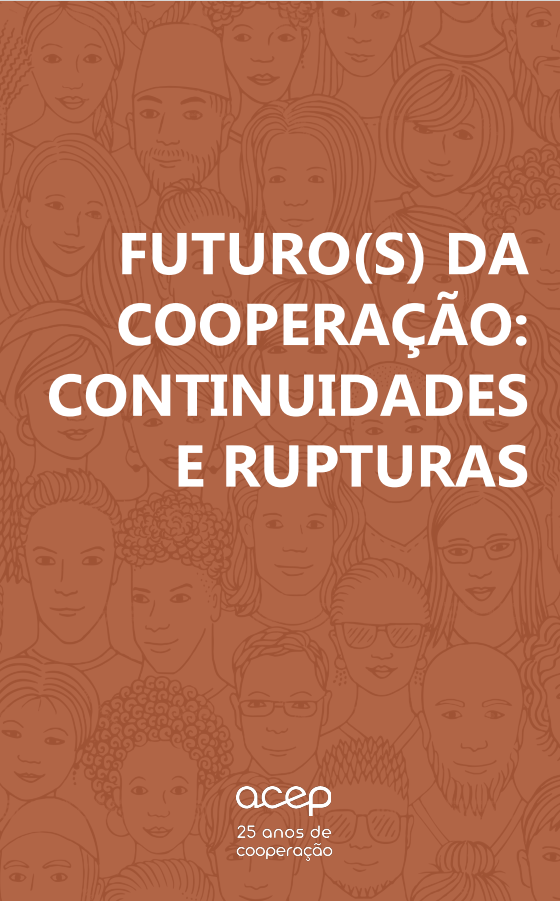
Futuro(s) da Cooperação: Continuidades e rupturas
Abstract:
At a time when a new strategy for Portuguese Cooperation is being defined and profound changes are taking place at the global level, ACEP and CEsA have decided to mark their years of experience in the sector with a document that is intended as a contribution towards evaluating the path of Portuguese Cooperation policy and setting the course for possible futures. In Futuro(s) da Cooperação: Continuidades e Rupturas, in addition to our vision and questions about the policies of Portuguese and European cooperation and the role of civil society, we have also included other voices of partners and specialists, particularly from Africa, which run through the whole document and give it a more plural, multidisciplinary and multi-geographic character. This document was prepared by the ACEP team, within the framework of an advocacy and political influence project, developed in partnership with CEsA (CSG/ISEG/ULisboa), with the support of Camões – Instituto da Cooperação e da Língua. Alongside the rescue of principles and values – in speech and in practice – a serious and uncomplicated discussion must be started on power relations and the ‘delocalisation of aid’, laid bare by the pandemic crisis. This debate, already on the agenda in countries like the United Kingdom, is still absent in Portuguese Cooperation. An approach to the localisation of cooperation as a process of autonomisation implies a process logic, without a fixed time, in which non-financial resources are valued, which allows for a subjective space/time for growth and which lasts beyond this or that funding or project.
Quotation:
Oliveira, A. F., Proença, F., Cavaco, R. (2021). Futuro(s) da Cooperação: Continuidades e rupturas. Lisboa: ACEP e CEsA.
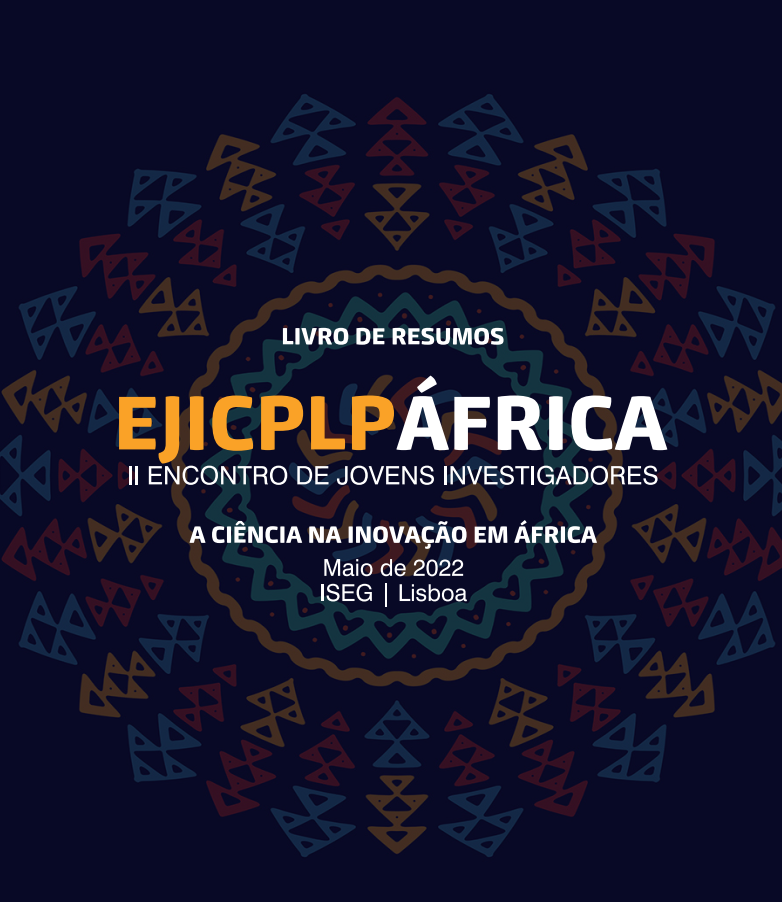
Ebook – EJICPLP Africa: Science in Innovation in Africa
Abstract:
The Meeting of Young Researchers from CPLP on Africa is an inclusive space for debate and scientific dissemination in African studies and in Portuguese language, in an innovative, democratic and multicultural perspective. The success of this project began in 2021, when it was proposed to bring participation and protagonism to young people, as agents of change in a living community in permanent transformation. In this context, the 2nd Meeting was held in May 2022, in Lisbon, where the role of science in innovation in Africa was discussed, exceeding all expectations, whether in the quality of the debates, the excellence and diversity of the works presented, or the massive adhesion of the participants. The Meeting took place thanks to the work carried out by the Organising Committee, an International Scientific Council, with the collaboration of the Centre for African and Development Studies (CEsA), as the proponent entity. in addition to the support of other partner institutions, such as the CPLP, Lisbon City Council (CML), Higher Institute of Economics and Management (ISEG), Catholic University of Angola (UCAN), Union of Portuguese Speaking Capital Cities (UCCLA), Eduardo Mondlane University (UEM – Mozambique), Association of Municipalities for Sustainable Development of the Umbria Region (FELCOS – Italy). The 2º Encontro de Jovens Investigadores da CPLP sobre África – Livro de Resumos was only possible thanks to the collaboration of numerous people, in particular the Organizing Committee, the Scientific Council, the Speakers, the Institutional Partners, the Medias Partners, the Volunteers and the Scientific Community.
Quotation:
D’Abril, Cristina Molares [et al.] (2022). “2º Encontro de Jovens Investigadores da CPLP sobre África. Livro de Resumos”. ISBN: 978-989-54687-3-7
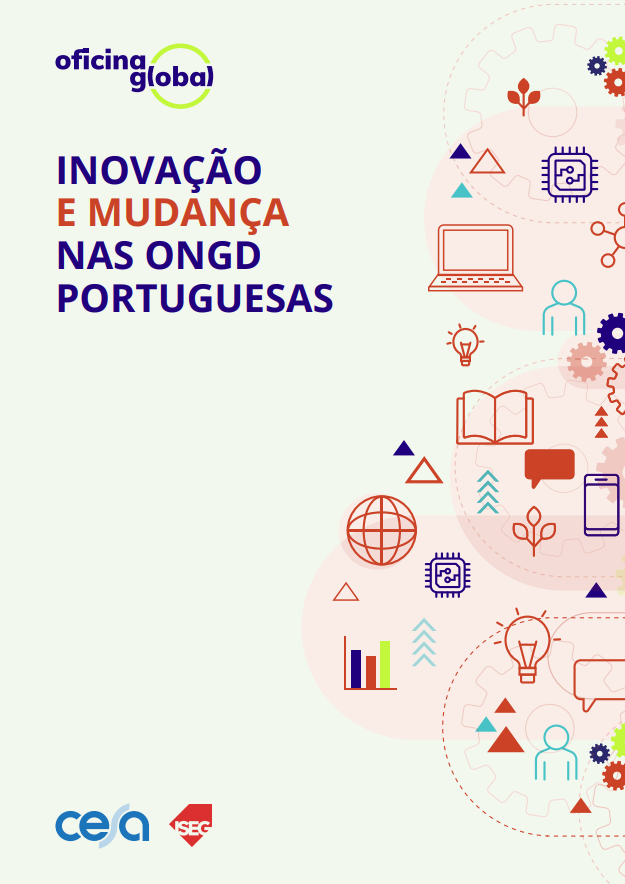
Inovação e mudança nas Organizações Não-Governamentais de Desenvolvimento (ONGD) Portuguesas
Inovação e mudança nas Organizações Não-Governamentais de Desenvolvimento (ONGD) Portuguesas by Ana Luísa Silva and Renata Assis focuses on innovation for development in the context of Portuguese NGDOs. Given the diversity of interpretations that the concept of innovation itself raises, the study began by mapping the perspectives, practices and culture of innovation of the actors under analysis. In this way, we sought to ascertain what is innovation for Portuguese NGDOs? What priority do they give to innovation? What obstacles do they face? And what reasons lead Portuguese NGDOs to wish (or not wish) to innovate?
Abstract:
This study focuses on innovation in the context of International Cooperation for Development (ICD) – innovation for development – from the perspectives of Portuguese Non-Governmental Development Organizations (NGDOs). Given the diversity of interpretations that the concept of innovation can present, any analysis on the subject must begin by identifying the perspectives and practices of the actor(s) under analysis. In this way, the analysis is guided by the questions: what does innovation mean for Portuguese NGDOs? What priority do you give to innovation? What obstacles do you face? What types of innovation do they develop and implement? What reasons lead Portuguese NGDOs to want (or not want to) innovate? As this is the first wide-ranging study on innovation in Portuguese NGDOs, we sought to map the culture, capacity, existing innovation support structures in Portuguese NGDOs and also identify obstacles/constraints to innovation in these organizations. The study was carried out through an online questionnaire survey, which received responses from 46 organizations in the period from November 9 to 26, 2021. The sample included organizations with a wide variety of organizational structures, according to the diversity of the universe of 163 Portuguese NGOs. The survey results show that innovation is very present in the agenda, strategies and priorities of the NGDOs surveyed: for the vast majority (88%) it is a “High” or “Very High” priority in the scope of their work. Respondents show broad and multifaceted perspectives in defining innovation. However, for the NGDOs that responded to the survey, innovation is mainly seen as a tool to improve processes, increase the efficiency and impact of their work. Potentially disruptive innovations capable of leading to systemic change are infrequent in the identified examples. In addition, although they consider themselves innovative, the NGDOs surveyed also identify important obstacles to innovation, namely in terms of funding and available human resources – 73% say they do not have any kind of budget available for innovation. The study ends with a set of reflections and identifies possible ways to help build a context more conducive to innovation for development, particularly in Portuguese NGDOs. It is important that innovation is seen and approached as an approach to building social and systemic change, which is why it is essential to invest in partnerships and joint work. Among the possible paths presented, the creation of a multi-actor working group dedicated to the theme, the creation of a fund to finance innovation projects for development and the commitment to training and training NGDO employees stands out.
Quotation:
Silva, Ana Luísa e Renata Assis (2022). Inovação e mudança nas Organizações Não-Governamentais de Desenvolvimento (ONGD) Portuguesas. Lisboa: CEsA – Centro de Estudos sobre África e Desenvolvimento/ISEG
Access the article here.
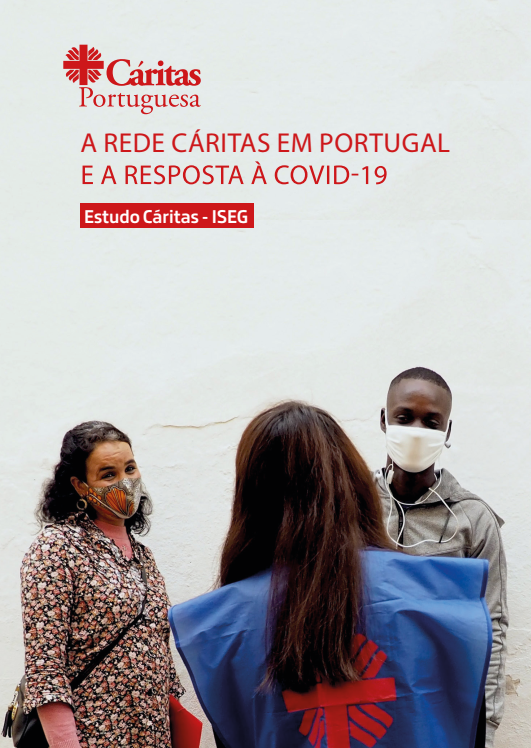
A Rede Cáritas em Portugal e a Resposta à Covid-19
Resumo:
A Rede Cáritas em Portugal e a Resposta à Covid-19 analyzes the importance of the social action of the Cáritas Network in Portugal in an unexpected and health emergency context, by documenting the organization’s response to the Covid-19 pandemic. An analysis is made of the continuity actions, but also of the innovations that emerged during the first year of the pandemic. With a presence that covers all the districts of Mainland Portugal and Islands, the Cáritas Network in Portugal developed, for the first time, a National Program of direct support to families in the form of goods and food stamps, as well as occasional and urgent financial support intended for payment of basic needs such as rent, health and electricity expenses, to a considerable number of beneficiaries (10,444 people, 3,205 families). The study shows that the Cáritas Network in Portugal was able to continue the food support activities and occasional support that it was already developing, given a greater demand from families: 60% of people who sought support from Cáritas in this period had never resorted to this kind of help.
Citação:
Pais Bernardo, Luís, Ana Luísa Silva, Renata Vieira de Assis e Luís Mah (Coord.). 2021. “A Rede Cáritas em Portugal e a Resposta à Covid-19”. Estudo Cáritas / CEsA-ISEG. Lisboa: Cáritas Portuguesa. Agosto.
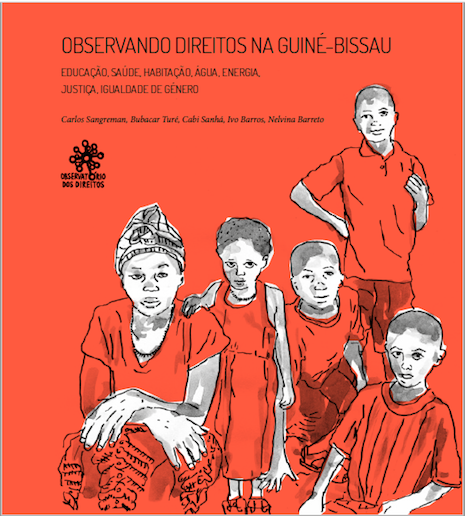
Observando direitos na Guiné-Bissau: educação, saúde, habitação, água, energia, justiça, igualdade de género
The Rights Observatory integrated in a structure such as Casa dos Direitos is an example of what civil society can do in fragile social contexts, but where power respects the Right to Opinion (even if at some times there is repression of media outlets such as radios and television and a climate of threat to critics of the situation at the time). The data collected on access to Economic and Social Human Rights, disseminated through books and exhibitions, in order to be used by activists and responsible authorities, has even been the basis for academic research at undergraduate, master’s and, this year, doctoral levels, especially in Portugal and Brazil.
Abstract:
The objective of Observando direitos na Guiné-Bissau: educação, saúde, habitação, água, energia, justiça, igualdade de género and the Observatório dos Direitos in 2019 was to continue the collection of data on access to Economic and Social Human Rights in Guinea-Bissau with data comparable to those of 2016, and to include two innovations: a new chapter on Women’s Rights or Equality of Gender and perform data collection also in the Bolama/ Bijagós region.
Quotation:
Sangreman, Carlos [et al.] (2020). Observando direitos na Guiné-Bissau : educação, saúde, habitação, água, energia, justiça, igualdade de género. Lisboa: ACEP, com LGDH e CEsA. URL: https://www.repository.utl.pt/handle/10400.5/20866
Access the article here.

Estudos sobre o Oceano Índico: antologia de textos teóricos
Estudos sobre o Oceano Índico: Antologia de Textos Teóricos is a book that gathers eleven theoretical texts by some of the most important thinkers on Indian Ocean Studies (IOS). This set of texts translated into an anthology, among other aspects, intends to give an account of the disciplinary polyphony that counter-punctuates the history of the Indian Ocean, while reflecting on the solidary cultural networks that are woven in the liquid and insular spaces, ports and port cities that climb the Indian Ocean rim from the African continent to India, based on the assumption that the Indian Ocean configures an identity and cultural geography of transnational nature.
Abstract:
Estudos sobre o Oceano Índico: Antologia de Textos Teóricos is a book that gathers eleven theoretical texts by some of the most important thinkers on Indian Ocean Studies (IOS).
In the framework of the Project NILUS – Narratives of the Indian Ocean in the Lusophone Space (https://cesa.rc.iseg.ulisboa.pt/nilus/), the research group started to map the main lines of disciplinary reflection in this area through a survey of theoretical texts written in English and French, by historians, writers and scholars of the human and social sciences, from South Africa, Mauritius, Reunion Island, Madagascar and India.
This set of texts translated into an anthology, among other aspects, intends to give an account of the disciplinary polyphony that counterpointingly animates the history of the Indian Ocean, while reflecting on the solidary cultural networks that are woven in the liquid and insular spaces, in the ports and port cities that climb the Indian Ocean rim from the African continent to India, based on the assumption that the Indian Ocean configures an identity and cultural geography of a transnational nature. In addition, there is also the need to re-signify and re-articulate this field of studies in Portuguese-speaking contexts through a critical and methodological dimension not necessarily related to the imperial narrative, especially now that the very notion of discoveries and discoveries is under a deep – and necessary – conceptual, historiographical and political scrutiny prompted by the project of creating a Museum of Discoveries.
In the texts translated here, the various types of religiosities and peoples, travellers and workers are also represented and historised, with their experience of migration and displacement, reconfigured in a similar material culture, in which gastronomy, cloths and maritime practices are given a prominent role. The topics of the sea, such as boats, monsoons, fishing and networked narratives about travel imaginaries and myths, are also other aspects that fall within diversified disciplinary articulations such as ecology and ecocriticism. In fact, the presence of the non-human – in its multiple material, geological, organic, non-organic declinations, etc. – in the texts gathered here, points to the growing interrogation, already raised by Isabel Hofmeyr, about the theoretical emergence of ‘oceanic ontologies’ through which to rethink the oceans – and the Indian Ocean in particular – not only as backdrops and contexts, but also as actors/subjects/producers of narratives.
Quotation:
Leite, Ana Mafalda, Elena Brugioni e Jessica Falconi, org. (2020). Estudos sobre o Oceano Índico : antologia de textos teóricos – excertos. Lisboa: CEsA/ISEG. URL: https://www.repository.utl.pt/handle/10400.5/19965

Inovação para os objectivos de desenvolvimento sustentável
Inovação para os objectivos de desenvolvimento sustentável by Luís Pais Bernardo is a guide to perplexity. Innovation for Development is the subject of reports, studies and international conferences. Laboratories, centres and initiatives multiply. Innovation models, innovation at scale and the impacts of innovation are discussed. But the fundamental questions remain. What is Innovation (for Development)? What is it for? How is it done? And is it worth doing? These are the questions that the entire international development community has been asking, without pause, for a decade. This report is a guide that does not aim to discover the origin of the practices and discourses of Innovation for Development. Nor do we intend to draw up a compendium of innovations. Our ambition is somewhat more pragmatic: to provide concrete answers to immediate questions and to help build a stronger debate on development, development cooperation and innovation in development cooperation. Where necessary, we explore important questions that are reflected in innovation practice: for example, Innovation for Development is an answer to the problem of ODA effectiveness and a priority of the 2030 agenda. Why does this matter? Because it has implications for the financing, practice, impact, scale and evaluation of development cooperation.
Abstract:
What is Innovation for Development? What is it for? How is it done? And how does it differ from innovation in other sectors? This report is an answer to those questions. Between 2015 and 2030, the Sustainable Development Goals are the great global challenge. Innovation for Development emerged in response to a complex debate on aid effectiveness. Today, the questions are different: how can we innovate to achieve the SDGs? In this report, we focus on clarifying basic terms: innovation, scale and impact. We discussed the need to structure Innovation for Development around five components: learning, creating, organizing, leading and collaborating.
Quotation:
Bernardo, Luís Pais (2020). Inovação para os objectivos de desenvolvimento sustentável. Lisboa: CEsA – Centro de Estudos sobre África e Desenvolvimento/ISEG. URL: https://www.repository.utl.pt/handle/10400.5/20052
Access the article here.
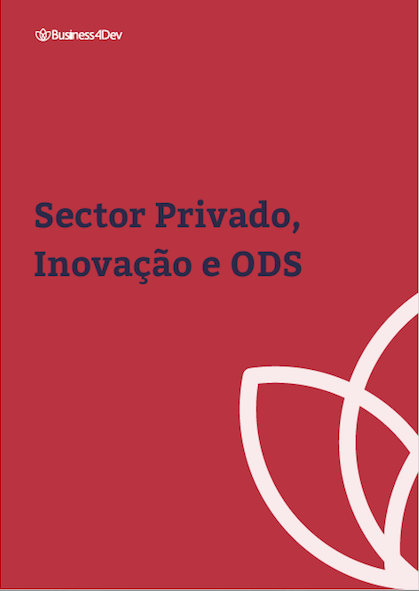
Sector privado, inovação e ODS
In Sector privado, inovação e ODS, Luís Pais Bernardo explores the reasons why companies can and should adopt business models aligned with the SDGs, in partnership with international cooperation actors. Partnerships are key to this transformation; today, business economic activity tends to move along global value chains in which the intervention of international cooperation for development, around the 2030 Agenda, will have an increased impact. In this context, the inclusive and responsible management of the procurement of services and products on a global scale by companies becomes increasingly important. Partnerships, global value chains and procurement of goods and services are the three areas explored in this report.
Abstract:
The central role of the private sector in international development cooperation is one of the innovations of the 2030 Agenda. In 2014, UNCTAD estimated the annual funding gap for the Sustainable Development Goals (SDGs) at US$2.5 billion. Following the Busan summit and the conclusions of the Millennium Development Goals (MDGs), the capabilities, resources and skills of the private sector are no longer viewed with suspicion, but are seen as central to achieving the 17 SDGs. Innovation, as a pillar of the private sector in the 20th century XXI, is the new paradigm. In this report, we explore the reasons why companies can and should adopt business models aligned with the SDGs, in partnership with international cooperation actors. Partnerships are key to this transformation; today, business economic activity tends to move along global value chains in which the intervention of international cooperation for development, around the 2030 Agenda, will have an increased impact. In this context, the inclusive and responsible management of the acquisition of services and products on a global scale by companies, assumes an increasing importance. Partnerships, global value chains and procurement of goods and services are the three areas explored in this report.
Quotation:
Bernardo, Luís Pais (2020). Sector privado, inovação e ODS. Lisboa: CEsA – Centro de Estudos sobre África e Desenvolvimento/ISEG. URL: https://www.repository.utl.pt/handle/10400.5/20053
Access the article here.





